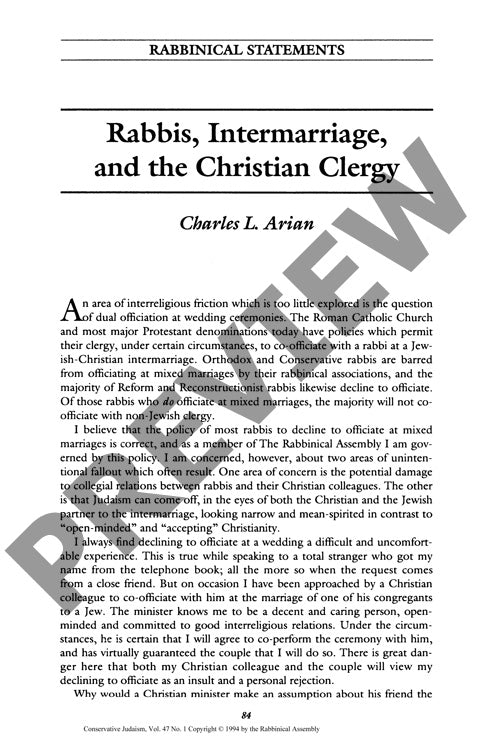Rabbis Intermarriage and the Christian C
Couldn't load pickup availability
When Jewish and Christian clergy navigate interfaith marriage ceremonies, they confront a profound theological divide that shapes their willingness to co-officiate. Conservative and Orthodox rabbis overwhelmingly decline to participate in intermarriage ceremonies, while Christian denominations increasingly embrace them - a contrast rooted in fundamentally different theological frameworks. Through theological analysis and experiential observations, this research reveals how Judaism's particularistic view of marriage as "k'dat Moshe v'Yisrael" (according to the law of Moses and Israel) conflicts with contemporary Christianity's universalistic theology extending God's covenant through Jesus Christ to all humanity. These divergent approaches often create misunderstandings between clergy colleagues and can portray Judaism as exclusionary compared to Christianity's perceived inclusiveness. Proactive educational initiatives helping Christian clergy understand Jewish law and attitudes toward intermarriage can transform Christian ministers into advocates who decline to co-officiate with "marrying rabbis." While addressing this issue through rabbinical organizations and interfaith clergy associations could enhance mutual respect and reduce disaffection among interfaith couples, such efforts would likely not significantly impact overall intermarriage rates.

More Information
-
Physical Description
-
Publication Information
Published 1994
ISBN
-
Publication Credits
Charles Arian

